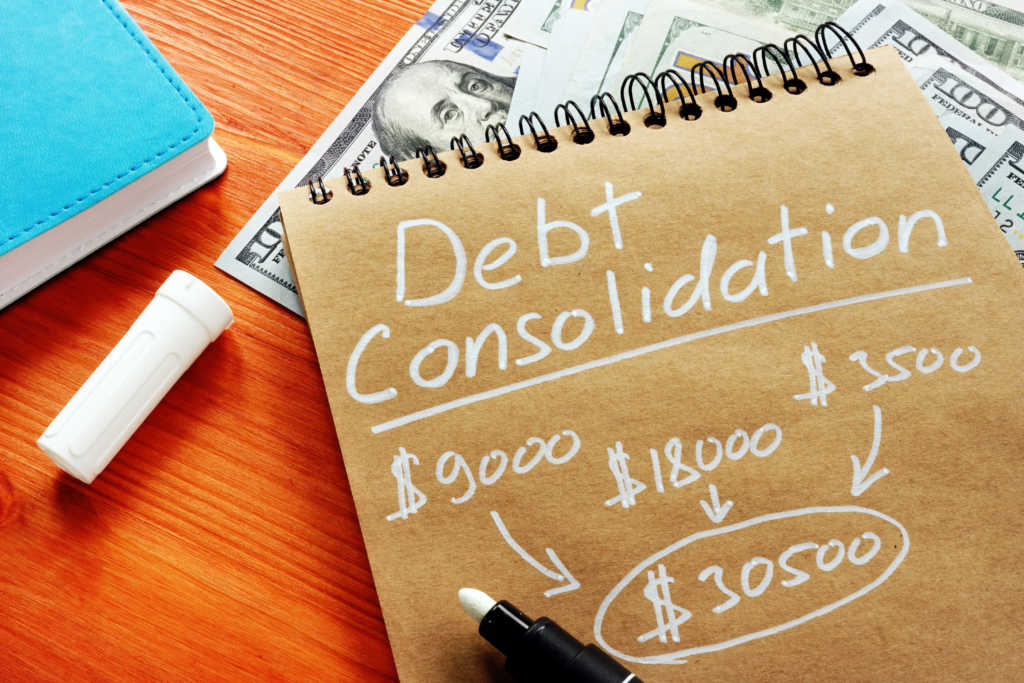
Chapter 7 bankruptcy is a powerful financial tool that allows eligible individuals and businesses to discharge (or write off) most (or all) of their debts with the help of a court-appointed trustee. Often referred to as “liquidation bankruptcy,” Chapter 7 allows debtors to walk away from their debts with a clean financial slate and some potentially significant tax benefits.
Contents
Benefits of Chapter 7 Bankruptcy
There are several benefits of filing for Chapter 7 bankruptcy.
- It can help you get rid of most of your debt.
- It can stop creditors from harassing you.
- It can give you a fresh start financially.
One of the primary benefits that Chapter 7 offers its debtors is the ability to discharge (or write off) certain types of debt, including unsecured credit card balances, medical bills, personal loans, and certain types of business debt. Most people who file for chapter 7 bankruptcy are able to keep all of their property. In addition, Chapter 7 bankruptcy also provides debtors with the opportunity to receive some potentially significant tax benefits, including the ability to wipe out certain taxes that may be owed to the IRS.
Pros & Cons of Chapter 7 Bankruptcy
Filing for Chapter 7 bankruptcy can be a difficult decision to make. This type of bankruptcy can offer some relief from debt, but it also comes with some risks. In this blog post, we will discuss the pros and cons of filing for Chapter 7 bankruptcy. We will help you decide if this is the right option for you.
Pros
The biggest pro of filing for Chapter seven bankruptcy is that it can give you a fresh start. This type of bankruptcy can help you get rid of some of your debt, which can be a huge relief. It can also stop creditors from harassing you and help you keep your property.
Cons
However, there are some cons to this type of bankruptcy as well. For one, it will stay on your credit report for up to ten years. This can make it difficult to get loans or lines of credit in the future. Additionally, you may have to give up some of your property in order to pay off your debts. Finally, filing for bankruptcy is a complex process and it can be expensive.
Overall, filing for Chapter seven bankruptcy can be a difficult decision to make. However, it can offer some relief from debt and help you get a fresh start. If you are considering this option, be sure to speak with an experienced bankruptcy attorney to discuss your options.
Eligibility for Chapter 7 Bankruptcy
In order to qualify for Chapter 7 bankruptcy, individuals and businesses must first pass a “means test.” The means test is designed to ensure that only those debtors who are truly in need of the relief offered by Chapter 7 are able to file for this type of bankruptcy. In order to pass the means test, individuals and businesses must have a certain level of income and/or assets.
What is a means test?
The means test is a way to determine if you qualify for chapter 7 bankruptcy. The test looks at your income and expenses to see if you can pay back some of your debt. If you can’t, you may be able to file for chapter 7 bankruptcy.
How To File For Chapter 7 Bankruptcy
Filing for Chapter 7 bankruptcy can be a difficult decision, but it may be the best option for you. This guide will walk you through the entire process, from deciding if Chapter 7 is right for you to completing the necessary paperwork. We’ll also discuss the benefits of filing for Chapter 7 and what to expect after your case is completed.
If you’re considering filing for Chapter 7, the first step is to understand what it is and how it can help you. Chapter seven bankruptcy is also called “liquidation bankruptcy” because it requires the debtor to sell some of their assets in order to pay back creditors. This type of bankruptcy can be a good option if you have a lot of debt and few assets, as it can help you get out from under your debt quickly.
The next step is to decide if Chapter 7 bankruptcy is right for you. There are a few things to consider before making this decision, such as your income, debts, and assets. You’ll also need to think about whether or not you can afford the fees associated with filing for bankruptcy. If you’re not sure if Chapter 7 is right for you, NOLO has some valuable information available to read and help you decide.
The Chapter 7 Bankruptcy Process
Once you’ve decided that Chapter 7 bankruptcy is the right option for you, it’s time to start gathering the necessary paperwork. This includes a list of your creditors, your income and expenses, and any assets you have. You’ll also need to fill out a petition and several other forms. These can be found on the website of the United States Courts.
After you’ve gathered all of the necessary paperwork, it’s time to file your case. This can be done online or in person at your local courthouse.
After a chapter 7 bankruptcy case has been filed, you’ll receive a notice from the court telling you when your first meeting with creditors will be. This meeting is called the “341 meeting” and it’s where you’ll discuss your case with your creditors.
What is a 341 meeting?
A bankruptcy 341 meeting is a creditors’ meeting that is required by the United States Bankruptcy Code. The purpose of this meeting is for the debtor to meet with their creditors and discuss their bankruptcy case. This meeting gives creditors an opportunity to ask the debtor questions about their financial affairs and to object to the debtor’s discharge if they believe it is appropriate.
The first bankruptcy 341 meeting is generally held between 20 and 50 days after the bankruptcy petition is filed, depending on whether the debtor requests a waiver of this requirement. Prior to attending this meeting, it is important for debtors to prepare by gathering all relevant financial documents, such as tax returns or receipts for business expenses. Debtors should also be prepared to answer questions about their financial history and circumstances during the meeting.
At the meeting of creditors, the debtor will be asked questions about their debts and assets, as well as their financial history. After the meeting of creditors has been held, the bankruptcy trustee will begin the process of liquidating (or selling) the debtor’s non-exempt assets in order to repay their creditors. Once the process of liquidation has been completed, the debtor will be discharged from most (if not all) of their debt, and they can begin the process of rebuilding their finances and financial futures.
Chapter 7 Bankruptcy FAQs
Here are some frequently asked questions about Chapter 7 bankruptcy.
What is Chapter 7 bankruptcy?
Chapter 7 bankruptcy is also called “liquidation” bankruptcy. It’s the most common type of bankruptcy. In a Chapter 7 case, you ask the court to discharge (wipe out) your debts. The court appoints a trustee to oversee your case. The trustee sells your nonexempt property and uses the proceeds to pay your creditors.
Chapter 7 bankruptcy is one of several different types of consumer bankruptcy options available to individuals and businesses who are facing serious financial challenges. This type of bankruptcy is designed to provide debtors with relief from many different types of unsecured debts, including credit cards and medical bills, as well as certain types of business-related debt.
In addition, chapter 7 bankruptcy can also provide individuals with the opportunity to receive some potentially significant tax benefits.
Who can file for Chapter 7 bankruptcy?
Almost anyone can file for chapter 7 bankruptcy, but there are some restrictions. For example, you must pass a “means test” to qualify. The means test is a way to determine if you qualify for Chapter 7 bankruptcy. The test looks at your income and expenses to see if you can pay back some of your debt. If you can’t, you may be able to file for chapter 7 bankruptcy.
What is the Chapter 7 bankruptcy process like?
Once a case is filed by an individual or business, they will be required to attend a meeting of creditors (also known as a 341 meeting) that typically takes place about 30 days after the case is filed.
At the meeting of creditors, the debtor will be asked questions about their debts, assets, and financial history. After the meeting of creditors has been held, the bankruptcy trustee will begin the process of liquidating (or selling) the debtor’s nonexempt assets to repay their creditors.
Once the process of liquidation has been completed, the debtor will be discharged from most (if not all) of their debt, and they can begin the process of rebuilding their finances and financial futures.
What do you need notarized when you claim bankruptcy?
Documents that need to be notarized when claiming bankruptcy can vary depending on the type of bankruptcy you are claiming and the state you are filing in. However, some common documents that may need to be notarized include:
-
- Bankruptcy Petition-List of Creditors-Schedule of Assets and Liabilities
- Monthly Income and Expenses Statement
- Statement of Financial Affairs
- Declaration Concerning Debtor’s Schedules
If you are unsure of which documents need to be notarized, you should consult with an experienced bankruptcy attorney in your state.
Are there any tools that can help me through the bankruptcy process?
There are many different types of tools that individuals and businesses may find helpful when working through the chapter 7 bankruptcy process. For example, debtors may find it helpful to work with a professional who is experienced in assisting individuals through the chapter 7 bankruptcy process.
In addition, tools such as personal finance apps, budgeting software, or financial planning books can help debtors gain control of their finances and prepare for the process.
Finally, there are also numerous resources available to debtors that provide valuable information about Chapter 7 bankruptcy and can help them to understand how the process works.
Conclusion
Overall, Chapter 7 bankruptcy provides debtors with a powerful financial tool that can help them to rebuild their finances and move forward after facing serious financial challenges. While the bankruptcy process may seem daunting at first, it’s important to remember that there are many qualified professionals who are available to help debtors through the process and on their way to a brighter financial future.
If you are considering Chapter 7 bankruptcy, it’s important to take the time to learn about your options and find the tools that can help you through the process.





